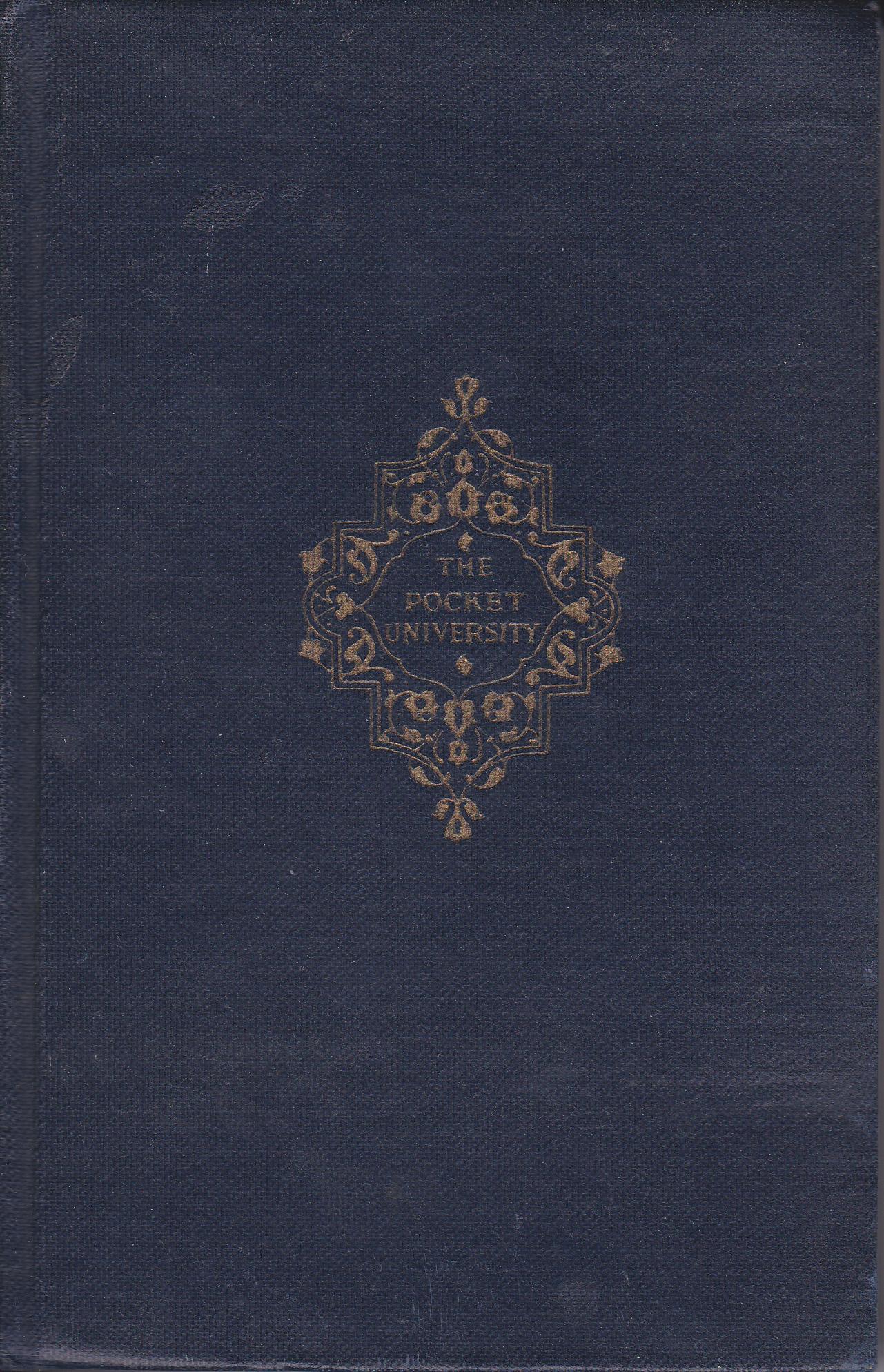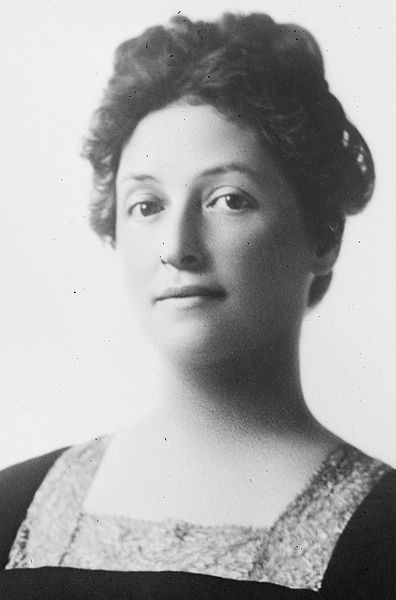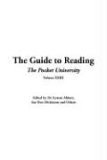
Part of Series
From the Introduction: "No Twentieth Century collection of Little Masterpieces would be truly representative if it failed to include a group of modern one-act plays. This type of literary composition has developed remarkably since its rise in the 'Nineties, in England, France, Germany and more especially in America. It is noteworthy that American writers who have done so much with and for the short story should also have been attracted by and have shown proficiency in the composition of the one-act play. The two media, obviously, have many characteristics in common. The swiftness of movement and pitiless pruning away of non-essentials that are indispensable to both have evidently attracted a people that have the reputations of being always in a hurry. There have of course been one-act plays of some sort, time out of mind. They were represented in the religious folk-drama of earlier centuries; in the form of farces they have long been in common use as curtain-raisers or after-pieces; and as "playlets" they have been familiar to the vaudeville audiences of the past fifty years. But the one-act plays in this volume, while differing wildly from each other, have little in common with any of the types just mentioned. The modern one-act play at its best is indubitably a work of art, and we have no hesitation in claiming consideration on this ground for the ten plays that are presented here." Contents: A Night at an Inn Lord Dunsany Beauty and the Jacobin Booth Tarkington Fortune and Men's Eyes Josephine Preston Peabody Overtones Alice Gerstenberg ShamFrank G. Tompkins Eugenically Speaking Edward Goodman The Medicine ShowStuart Walker The Little Man John Galsworthy The Judgment of Indra Dhan Gopal Mukerji The Shadowed Star Mary MacMillan
Authors

Alice Erya Gerstenberg (2 August 1885 – 28 July 1972) was an American playwright, actress, and activist best known for her experimental, feminist drama and her involvement with the Little Theatre Movement in Chicago. Gerstenberg was born in Chicago, Illinois, the only child of Julia and Erich Gerstenberg. Gerstenberg’s grandfather was a founder and member of the Chicago Board of Trade in 1848, a position Gerstenberg’s father inherited later on. Due to this, the Gerstenbergs enjoyed a higher standard of living than most middle-class families in Chicago at the time. Growing up, Gerstenberg had ample travel experiences and social indulgences including commercial theater. She attended a private school in Chicago and later graduated from Bryn Mawr, a women’s college in Pennsylvania, in 1907. After college, she spent some time in New York watching the rehearsals of David Belasco before returning home to Chicago. After living in New York for a period, Gerstenberg returned to Chicago, where she continued to write plays; became involved with the Little Theatre movement, supported her parents, and exercised a strong feminist dedication to bringing non-commercial theater to new playwrights, children, and Chicagoans. Her previous involvement with the theater during her childhood, the plays she wrote at college, as well as the time spent in New York led her to continue writing plays for the rest of her life, working occasionally as an actress, and maintaining an activist role in the theater. Although the majority of her plays have largely been forgotten, her magnum opus Overtones has continued to be produced since its publication in 1913. In 1913, Gerstenberg wrote Overtones, a one-act play, her second stage play, and her most frequently performed and printed, which was first produced in November 1915 by the Washington Square Players at the Bandbox Theater in New York. It has been anthologized alongside Susan Glaspell’s Trifles as a textbook case of modern one-act plays by women involved in the little theater movement. The play crystallizes her use of experimental form with a familiar dramatic conflict. The play enjoyed many productions due to its innovative use of the split subject, a technique Eugene O'Neill would later use in his play Strange Interlude. Gerstenberg continued to write many one-act plays early on in her career, many of which were performed by regional or little theaters in and around Chicago. The majority of these plays demonstrate her feminist tendencies – critiquing the social roles and decision which constrained women of the time. Gerstenberg continued to write plays throughout her life, later on publishing several radio plays as well as several commissioned dramatizations of children’s stories. Gerstenberg’s influence on the theater is not limited to her early experimental forms; she played a crucial role in the foundation and success of several theater companies as well as the Little Theater Movement in Chicago. In 1921, she founded the Junior League Children’s Theater in Chicago; in 1922 she founded the Playwrights Theater; and finally she supported an amateur theater company which was eventually named for her at its foundation in 1955. Her work with these theater companies demonstrates her commitment to making non-commercialized theater available to new playwrights, giving them the opportunity to see their plays produced; regional playwrights, demonstrating an appreciation for Chicago and the Midwest; and finally to children, giving them an early experience with the theater, the opportunities to act, write, and become involved. Furthermore, she hoped that her work would bring Chicagoans to support non-commercial theater. Gerstenberg was one of a handful of women invited to speak at the National Drama Council and National Theatre Conference in 1936, an invited speaker at three A.E.T.A conferences, and won the Chicago Foundation for Literature Award in 1938. Gerstenberg remained involved in the theater th

from Encyclopedia Britannica: Peabody grew up in Brooklyn until 1884, when the death of her father and the consequent poverty of her family forced them to move to the home of her maternal grandmother in Dorchester, Massachusetts. Peabody had absorbed her parents’ love of literature and the theatre, and she read and wrote constantly. Her first published work was a poem that appeared in The Woman’s Journal in 1888, when she was 14 years old. Her formal schooling nearly ended with three years at the Girls’ Latin School in Boston (1889–92), but, after poems of hers had been accepted by the Atlantic Monthly and Scribner’s Magazine in 1894, Peabody was enabled by a patron to attend Radcliffe College in Cambridge as a special student (1894–96). Her first volume of verse, The Wayfarers (1898), was followed by Fortune and Men’s Eyes (1900), a one-act play built on Shakespeare’s sonnets, and Marlowe (1901), a verse play on Christopher Marlowe. From 1901 to 1903 she lectured on poetry and literature at Wellesley (Massachusetts) College. After a European tour in 1902 Peabody produced The Singing Leaves (1903), a collection of poems. Her early verse shows the influences of Shakespeare, Robert Browning, and the Pre-Raphaelites, especially Christina Rossetti; it is marked by delicacy, clarity, and a certain otherworldliness. In 1906 Peabody married Lionel S. Marks, a Harvard engineering professor. In 1908 she published The Book of the Little Past, a collection of poems for children, and in 1909 The Piper, a verse drama on the Pied Piper legend, which won the Stratford Prize Competition and was produced at theatres in London and New York City. The Singing Man, a collection of poems exhibiting Peabody’s growing concern with social injustice, appeared in 1911. Her other works include The Wings (1907), a verse drama; The Wolf of Gubbio (1913), a drama about St. Francis of Assisi; Harvest Moon (1916), poems; The Chameleon (1917), a comedy; and Portrait of Mrs. W. (1922), a play about Mary Wollstonecraft.

Literary career of English novelist and playwright John Galsworthy, who used John Sinjohn as a pseudonym, spanned the Victorian, Edwardian and Georgian eras. In addition to his prolific literary status, Galsworthy was also a renowned social activist. He was an outspoken advocate for the women's suffrage movement, prison reform and animal rights. Galsworthy was the president of PEN, an organization that sought to promote international cooperation through literature. John Galsworthy was awarded the Nobel Prize in literature in 1932 "for his distinguished art of narration which takes its highest form in The Forsyte Saga."

